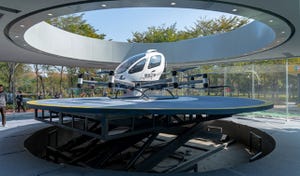AI, Sustainability Converge in the Manufacturing SectorAI, Sustainability Converge in the Manufacturing Sector
Traditionally resource-hungry sectors like steel and chemicals are using AI to transform their operations, achieving profitability with sustainability

As the manufacturing sector evolves, the convergence of artificial intelligence (AI) and sustainability is emerging as a powerful force for change. With two-thirds of the world’s emissions coming from heavy industry, it is traditionally seen as a heavy consumer of resources and a significant contributor to detrimental environmental impact. Sectors like steel and chemicals are now leveraging AI to transform their operations, achieving both profitability and sustainability.
The 2024 Fero Labs Industrial Survey highlighted a telling insight: 64% of senior managers within a plant identified increasing profits as their top business target for the year. In contrast, only 41% placed significant importance on reducing emissions. This disparity underscores a common belief in the industry that profitability and sustainability are mutually exclusive objectives. However, with AI software, manufacturers can meet their profit targets while reducing their environmental footprint.
AI’s ability to analyze and optimize complex processes is at the heart of this transformation. In one instance, a major steel manufacturer used AI to optimize its blast furnace operations, resulting in a 3% reduction in fuel consumption and a significant decrease in CO2 emissions. Similarly, a chemical company adopted AI to refine its production processes, achieving a 15% reduction in waste and improved energy efficiency.
When global steel producer Gerdau incorporated AI to streamline its use of ferroalloys, it reduced its alloy costs by $3 per ton while improving its Scope 2 and 3 footprints by reducing the overall volume of alloy additives it needed to purchase and have delivered each year. These examples demonstrate that AI is already driving both economic and environmental benefits for early adopters.
Despite these successes, the adoption of AI in manufacturing has not been without challenges. The industrial survey revealed that plant managers in a factory often act as technological gatekeepers, hesitant to adopt new technologies. This resistance is understandable given the industry's history of relying on established methods and the economic and safety risk of making errors. However, the potential benefits of AI far outweigh the initial hurdles in an industry where optimization and instructions are often still recorded by hand.
Imagine a scenario where achieving profit targets also means operating sustainably. With AI, this is not just a possibility but a tangible reality. AI-driven predictive maintenance can prevent unexpected downtimes and reduce waste, while process optimization can enhance resource efficiency and minimize energy consumption. Energy management systems powered by AI can monitor and control usage in real time, reducing the carbon footprint of manufacturing operations.
If a company knew it could achieve profit targets sustainably, why wouldn't it? There wouldn’t need to be any trade-off between economic or environmental objectives. This question is central to the future of manufacturing. Embracing AI not only drives profitability but also aligns with the growing regulatory and consumer demands for sustainable practices. That’s good for the plant and the planet.
This article first appeared in IoT World Today's sister publication AI Business.
About the Author
You May Also Like








